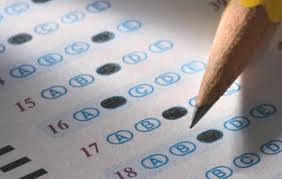
Finals are here and to help students, the department has compiled the following advice on planning, studying, and how to use your time productively. We have compiled information from around the web to help. Don't panic- remember that the work you have done throughout the semester will pay off.
Don't let anxiety get to you. This is easier said than done, but panicking will not help. It will only waste valuable time that could be spent studying. It will also make you less able to concentrate on your studies. Also, avoid caffeine as it will only make you more anxious.
Use your time wisely. Concentrate on weak spots. If you do not understand a certain concept or area, work on it. Review what you already know, but do not spend the majority of your time concentrating on this.
According to Oxford University, mind maps and notecards are great tools to implement. Mind maps will allow you to see what you have covered throughout the semester and let you get a grasp on the big picture. Notecards will allow you to test yourself and see problem areas.
Oxford also states that revision should be tackled in ten minute increments. They advise the following: "If you are given something to learn, after ten minutes, you reach the peak your recalling ability, it then falls off very quickly afterwards and you can only remember about 10% after 24 hours. Memorizing is a process. When you study a piece of work, after ten minutes, review it for ten minutes. Then, after 24 hours, review it again."
Form a study group. Of course, this will probably be very short-term, but talking about concepts out loud could help you pinpoint areas that you are misunderstanding. It will also provide a support group to get you through exams that you are particularly worried about and will allow you to socialize productively.
Remember, if you have gotten this far, you must be doing something right. If you have worked hard all semester, you will have nothing to worry about. Review your class notes and past assignments, note problem areas, and resolve them. If you do these things, you should be fine.
Eat well. It is sometimes hard to spare the time to cook a decent meal or run to the cafeteria, but nutrition is important and will help your concentration when studying.
MIT suggests making your goals reasonable. Do not plan to study 15 hours a day. This will be unproductive and is unrealistic. Also, give yourself options. If you are unable to concentrate pick another time to study. You will be less pressured and more productive. They also suggest planning out studying blocks during Dead Week. Do not leave everything until the last minute.
Finally, remember that your professors are here to help. If you see any problem areas, no matter how close it is to the exam, contact them to get it sorted out.